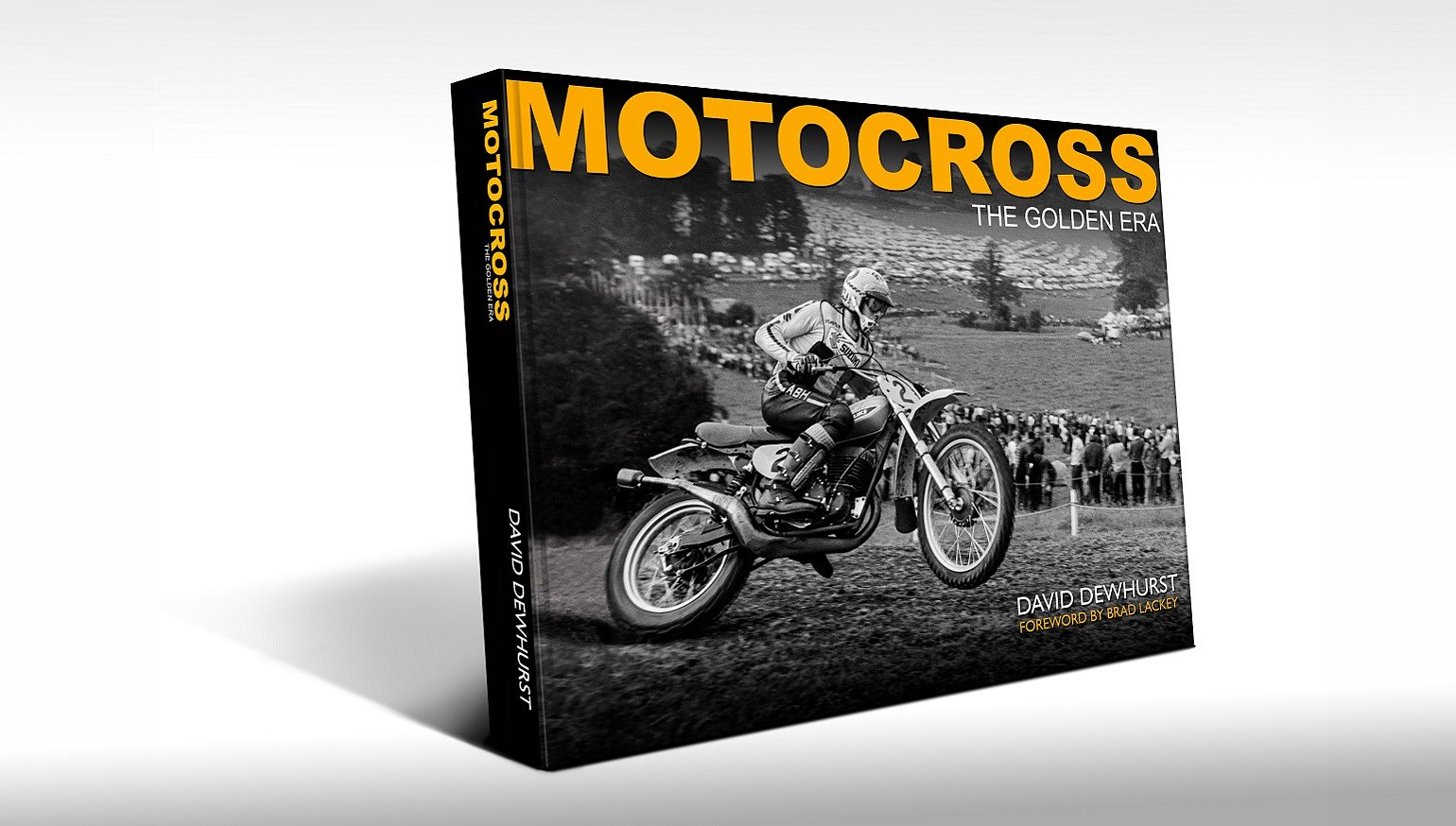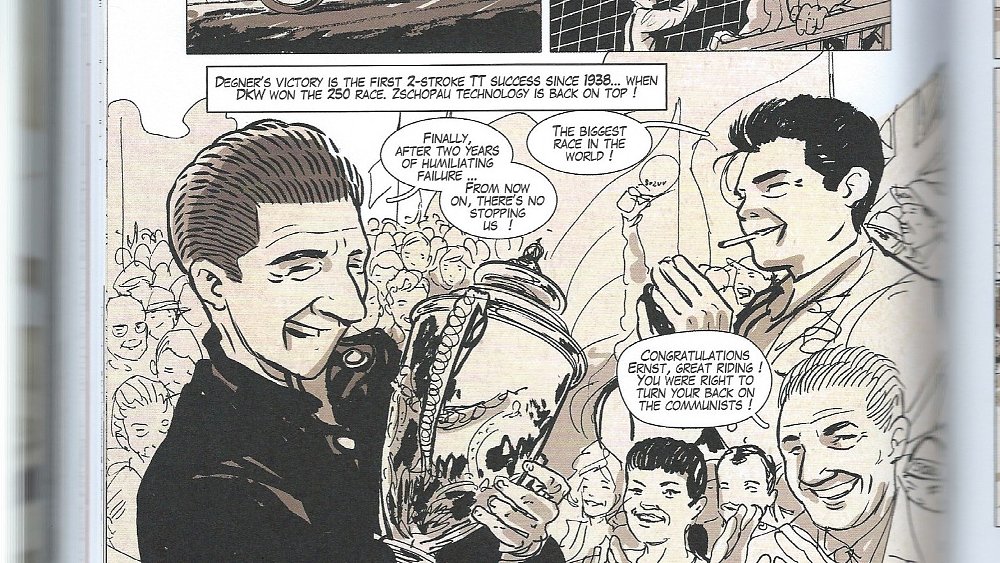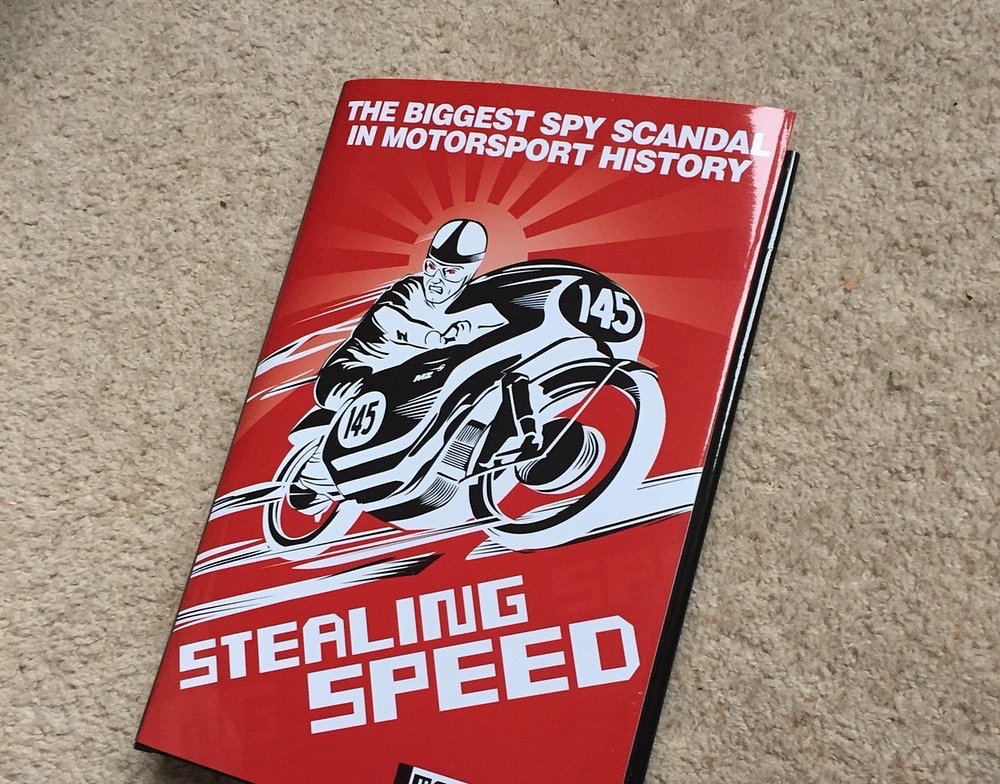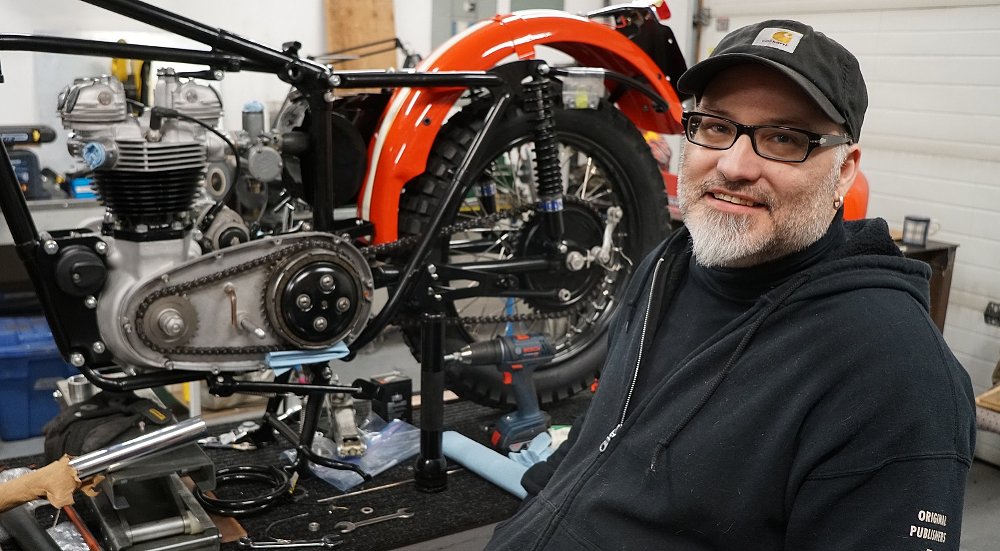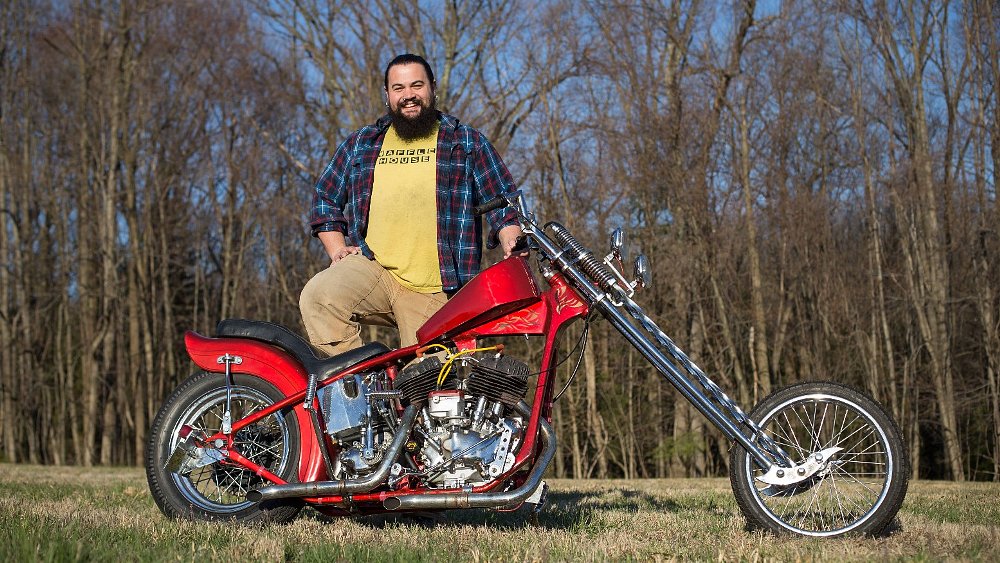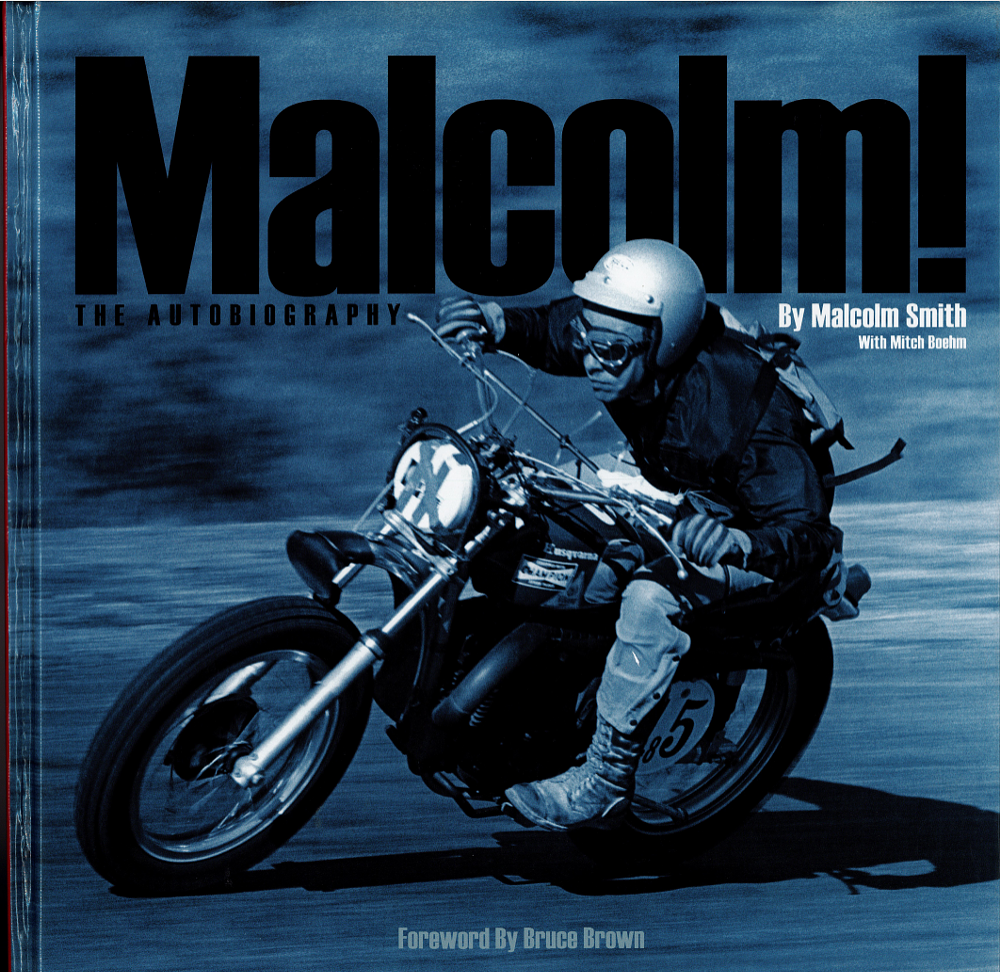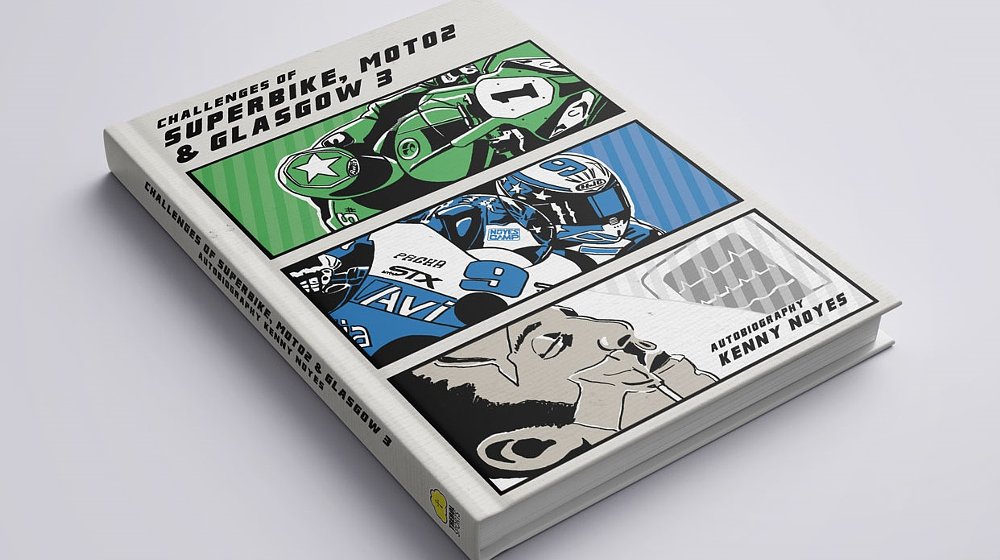Any list of “the best motorcycle books” or “my favorite motorcycle books” is going to be subjective as hell, so let's get this out of the way: I'm a street rider, with a road-racing background, and with a few exceptions my interests skew heavily in those directions.
I'm also interested in the mechanical side of bikes — how they’re made, how they work. But I'm not a vintage-bike buff; I don't give a bent pushrod about the history of Harley-Davidson or Triumph or the brilliant-but-unappreciated 1922 Thrashwell-Snailby underhead-cam wine-cooled triple. Sorry if you enjoy that sort of thing. There'll be another list by another writer along someday.
Editor's note: Jerry Smith is the author of several motorcycle books himself, including "Missed Shifts: True stories, tall tales, and outright lies from a 30-year career in motojournalism" and a couple of motorcycle-themed mystery novels. For many more suggestions for the best motorcycle books, beyond his list, see the "Related Stories" links. We've recommended a lot of great motorcycle books over the years.
Now that you have the context, here, then, are my entirely subjective picks for a few titles that justify taking up space on my bookshelf. (Full disclosure: I edited "Motocross: The Golden Era" and both volumes of "The Higdon Chronicles," but I have no financial interest in the sales of any of them. They're on this list because they're damn good reads.)
"The Higdon Chronicles: Iron Butts, Airheads, and My Life Behind Bars"
By Robert E. Higdon
Bob Higdon is the unofficial scribe of the Iron Butt Rally, a former loyal supporter and later scathing critic of BMW motorcycles, a world traveler, a tireless rider of roads both good and bad, and a raconteur of the highest order. The two volumes of the Chronicles include his epic crossing of Russia on a Honda Nighthawk, his clashes with ignorant authority, meditations on why we ride and why we stop, and an insider's rare, insightful, and passionate take on the strange, obsessive world of long-distance riders. I edited both volumes, which involved reading them more times than I can recall before publication, and I can still pick up either one, open it to any page, and find myself captivated by the writing and the subject matter.
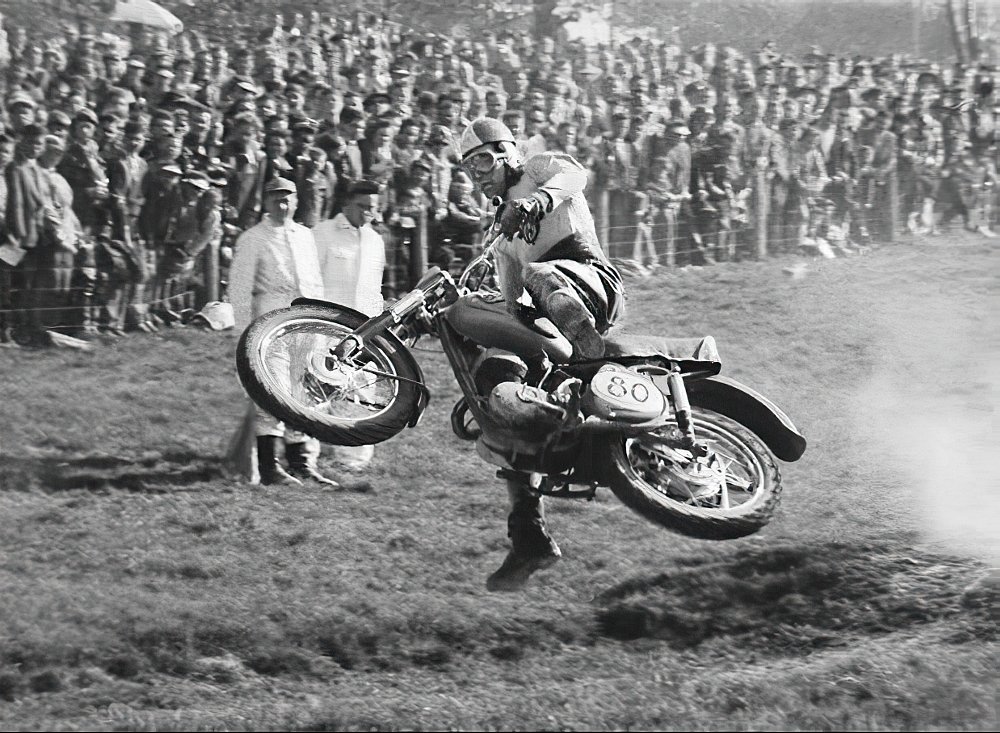
"Motocross: The Golden Era"
By David Dewhurst
As stated above, I'm a street guy. But after reading "The Golden Era," I know more about the history of motocross than someone whose only off-road skill is the face plant has any right to. Author Dewhurst has compiled a huge — six pounds, eight ounces, so dial up the preload on your coffee table — and exhaustive volume of the sport, lavishly illustrated with photos, many his own. The list of luminaries interviewed in the book is a who's who of motocross, and their stories are woven together to form the rich tapestry of not only motocross, but also Supercross, and the technical innovations, both successful and otherwise, that comprise the modern MX bike.

"Jupiter's Travels" by Ted Simon
"Lone Rider" by Elspeth Beard
Like a lot of riders, I dream of riding a motorcycle around the world. And like all but a tiny fraction of my fellow dreamers, the closest I'll ever get to it is reading about someone else's round-the-world adventures. But spare me the modern, sanitized, chase-truck-and-film-crew antics of well financed movie stars. Give me the old-school, OG, paper-map-and-crossed-fingers pluck of men and women riding questionable machinery in sketchy circumstances, where a seized wheel bearing can lead to a two-week layover in a fleabag motel in a town so remote the inhabitants never bothered to name it. Simon's book has earned a reputation as the seminal work of the RTW canon, but for my money Beard's is better. It's not only a first-class travel book, but also a complex, almost novelistic story of a woman, alone, on the road, and the roadblocks she rides over, around, and through.
"Proficient Motorcycling: The Ultimate Guide to Riding Well,"
By David Hough
There are plenty of books out there to help you become a better rider, but a few rise above the pack. "Proficient Motorcycling" has its flaws: It's jokey, and sometimes rambling, and it relies on scenarios that can feel contrived or included only for their shock value, like those gory "Signal 30"-type movies I was shown in high-school driver's ed. But beneath all that lie important lessons in street survival, including the crucial difference between riding in the city and the country, how to deal with extremes of weather, and even what to do if the festive dog sporting in the roadway decides to chase you. There is also advice about riding in groups (my own advice is "don't ever," but that's just me) and carrying passengers. Hough was inducted into the American Motorcyclist Association Motorcycle Hall of Fame in 2009 in recognition of his contributions to motorcycle safety.
"Total Control: High-Performance Street Riding Techniques"
By Lee Parks
I'm the first to say you shouldn't ride on the street like it's a racetrack, but I'll also cop to using a lot of what I learned in my days as a racer on the street. "Total Control" is the book for those who want to take their riding to the next level, not just on the street but also on the track. Parks lays out and then dissects the tricks used by the fast guys to get around corners quickly and smoothly, with emphasis on the mental techniques to overcome fear and increase concentration. He covers survival skills, too, and breaks each topic down into small, easily digested modules.
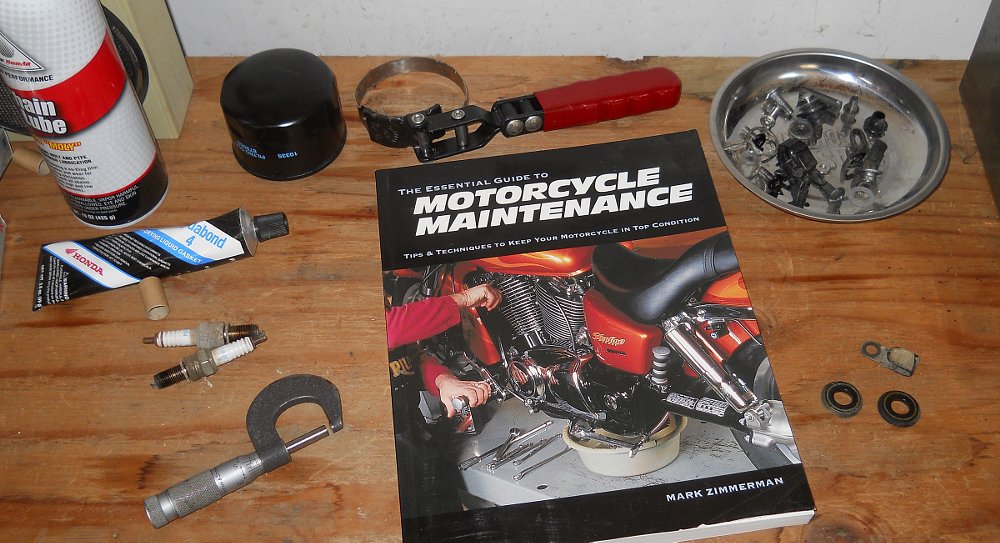
"The Essential Guide to Motorcycle Maintenance: Tips & Techniques to Keep Your Motorcycle in Top Condition"
By Mark Zimmerman
A good friend of mine toured all over the country for years with a toolkit consisting of a cell phone and a credit card. When something broke he'd call for a tow and hunker down until it arrived. He really could have used a copy of "The Essential Guide," a thorough and clearly written tutorial on routine motorcycle maintenance and repair. It also explains in detail, with countless color photos, how bikes work, with sections on engine, chassis, brakes, suspension, fuel, and electrical systems, cleaning, storage, and troubleshooting. It's a little behind the curve with respect to some of the very newest tech, but think of it as an uber shop manual, specific to no particular make or model but applicable to all. The title says it all: This book is essential.




